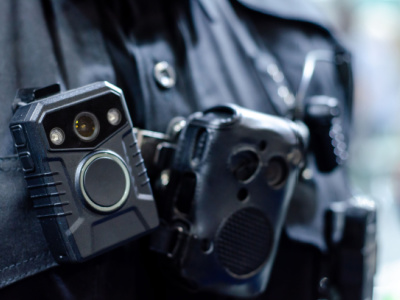 Excessive force, discrimination, and other forms of misconduct by police officers are growing concerns in the United States. Many police departments have little oversight, and even in situations where officers kill civilians without justification, they rarely face discipline. Over the past decade, concerns about police violence have led to calls for more oversight, and laws have been passed that have required police officers to wear body cameras
Excessive force, discrimination, and other forms of misconduct by police officers are growing concerns in the United States. Many police departments have little oversight, and even in situations where officers kill civilians without justification, they rarely face discipline. Over the past decade, concerns about police violence have led to calls for more oversight, and laws have been passed that have required police officers to wear body cameras
The use of these cameras is meant to ensure that instances of misconduct can be identified and that the appropriate actions can be taken in response. However, the ways in which body camera programs have been implemented have often failed to address concerns about misconduct. Because the actions of police officers can affect criminal cases, and excessive force by officers can lead to people being seriously injured or wrongfully killed, ongoing reform is needed. An experienced attorney can help people who have been affected by police violence during arrests understand their options for defending against criminal charges, including obtaining body camera footage and other evidence.
Following the rise of the Black Lives Matter movement, which has sought justice in cases where people were wrongfully killed by police officers, police departments and public officials have sought to implement programs that provide accountability for police misconduct. Many people believed that requiring police officers to wear body cameras would ensure that records of officers’ interactions with suspects would be preserved. Footage from these cameras could be reviewed by oversight boards and other agencies to determine whether misconduct occurred, and disciplinary actions could be taken against officers who acted inappropriately.
Unfortunately, the implementation of body camera programs has failed to provide the proper oversight in many jurisdictions. In many cases, police departments have been given control over how these programs are handled, and they have taken steps to protect themselves and avoid pursuing disciplinary action against officers who may have engaged in misconduct. When police departments control when body cameras are used, how footage is stored and cataloged, and when footage can be released to investigators, they are much less likely to take the proper actions to address misconduct.
An investigation by the New York Times found a large number of instances in which police departments impeded investigations or failed to properly address misconduct captured by body cameras, including:
In New York, police officers killed Miguel Richards in his own home while performing a mental health check. The body camera footage from the incident that was initially released by the NYPD was edited, and the officers were cleared of any wrongdoing. However, after years of requests, the Civilian Complaint Review Board obtained the unedited footage, which showed that officers appeared to use deadly force when it could have been avoided, and they failed to provide medical treatment after shooting the suspect.
In Minneapolis, Derek Chauvin, the officer who killed George Floyd by kneeling on his neck, had been investigated in multiple previous incidents where he used similar levels of unnecessary force. Even though body cameras recorded these incidents and showed Chauvin engaging in misconduct, the police department took no action to address these issues.
In South Carolina, sheriff’s deputies shot a man who was sitting in his truck. They claimed that he pointed a shotgun at them, but body camera footage showed that these claims were false. While the state has passed a law requiring the use of body cameras, the footage captured is not considered public records that police are required to disclose
The investigation found that police departments across the United States often fail to disclose body camera footage. In June of 2022, there were 79 incidents in which people were killed by police officers. Since then, body camera footage has only been released in 33 of these cases. Clearly, giving police departments control over when footage may be disclosed leads to less oversight. In far too many cases, these programs have failed to properly address misconduct and discipline officers who use excessive force or violate people’s civil rights.
Footage captured by body cameras can be important evidence that can affect a criminal case. People who are facing criminal charges or those who have been affected by police violence often face difficulties in obtaining this evidence and using it to achieve justice. At Woolf Law Firm, LLC, our Connecticut criminal defense attorney works to protect the rights of people who have been charged with crimes. We can ensure that video footage and other evidence will be properly evaluated during a criminal case, and we can also help our clients address violations of their rights by police officers. To learn more about our criminal defense services, contact us at 860-290-8690 and arrange a free consultation.
 50 Founders Plaza
50 Founders Plaza

